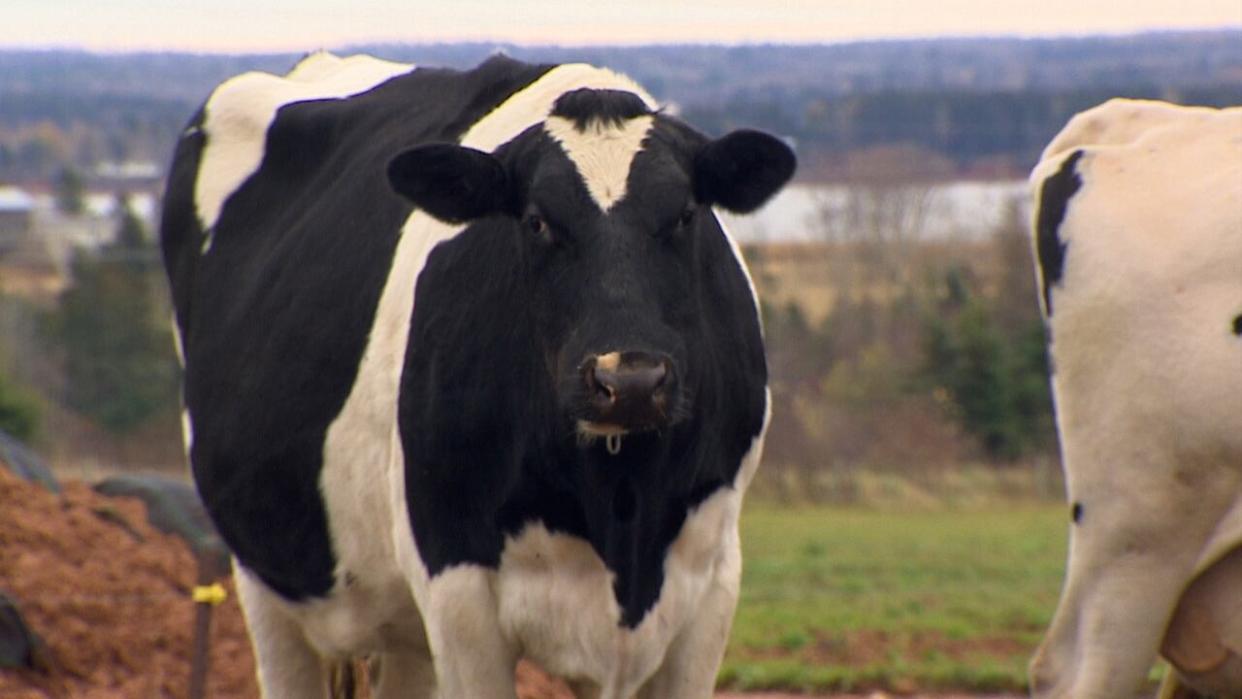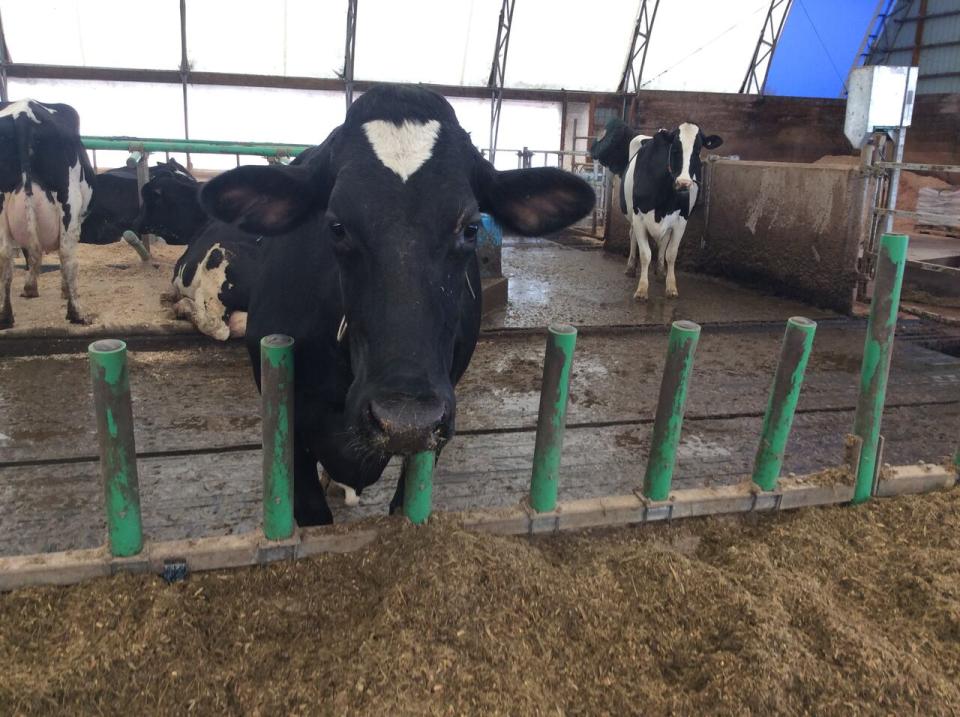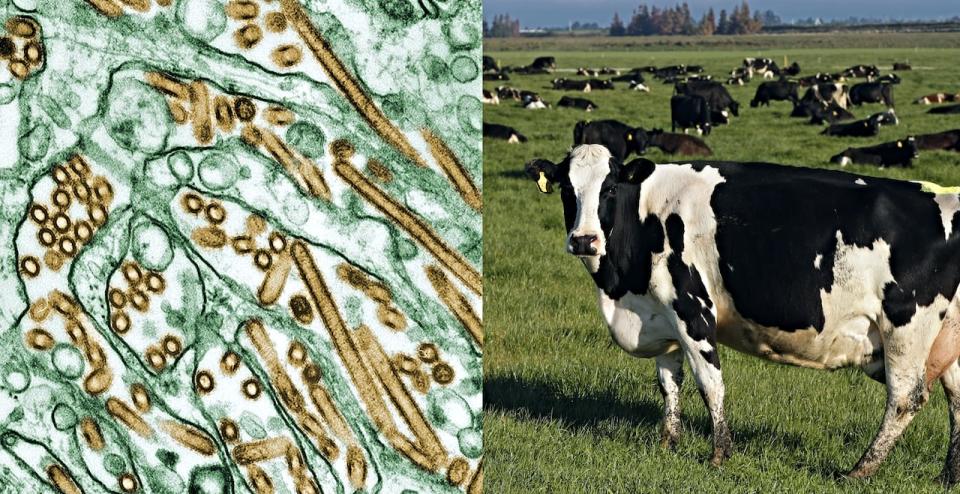P.E.I. milk being tested for avian influenza as precautions ramp up

P.E.I.'s chief veterinary officer is keeping in close contact with the Island's dairy farmers and veterinarians to make sure they have the latest information on the ongoing avian influenza outbreak in the United States.
The U.S. identified a second human case of bird flu linked to dairy cows last week. The H5N1 virus that's at the centre of the current outbreak is deadly to birds; in cows, it's resulted in decreased milk production, loss of appetite and fever.
The virus has not yet been detected in Canadian dairy cattle, and all tests of commercial milk for fragments of H5N1 have also been negative, according to the Canadian Food Inspection Agency (CFIA).
P.E.I.'s chief veterinary officer Dr. Jill Wood said the CFIA started preventative testing of cattle entering Canada from the U.S. back on April 29.

The H5N1 virus has not yet been detected in Canadian dairy cattle, and all tests of commercial milk for fragments of avian influenza have also been negative, the Canadian Food Inspection Agency says. (Nancy Russell/CBC)
"On that date, they started to require cattle crossing the border from the U.S. into Canada to have a negative avian influenza test before being permitted into the country. And they also started looking at retail milk samples from all across Canada," Wood said.
"They took 303 samples and those all came back negative, so again, good news on that front."
Tightening bio security
Wood said individual dairy farmers are also being advised to tighten their bio security.
"Simple things like asking visitors to to put on boot covers, keeping a visitor log, if they are buying new cattle to isolate those animals for a couple of weeks, milk them last," she said.
"[We're] definitely discouraging any purchases of cattle from the U.S. right now."
Wood said the way the avian flu is spreading on farms south of the border seems to be different from what happened among the bird population.
"If it was being spread entirely by the wild bird population, then that makes it very difficult to prevent," she said. "Birds are migrating and there's nothing we can do to stop them from from flying to Prince Edward Island."
The U.S. outbreak appears to have been spread from farm to farm, she said.
"The original cattle in Texas, we think, got infected by what we call a single spillover event from birds to cattle. And then the subsequent spread from there seems to mostly be because cattle from infected farms moved on to non-infected farms," Wood said.
"We're hoping with the test at the border and with the precautions that our farmers are taking that we can prevent it from showing up in Canada."

This year marked the first time a strain of bird flu was reported in dairy cows. (U.S. Centers for Disease Control and Prevention/The Associated Press)
She said there are still questions about how the virus is being transmitted.
"We haven't totally ruled out that that birds could introduce it on another farm," she said.
"So [we're] certainly asking farmers to be aware of that as well, and to report any increased number of dead birds or wildlife on their farms."
The P.E.I. government has an avian influenza page on its website, and the CFIA also provides regular updates.
'We trace every animal from birth'
Gordon MacBeath, a dairy farmer from Marshfield, P.E.I., and chair of the Dairy Farmers of Prince Edward Island, said the dairy industry has protocols in place already that will help monitor the avian influenza situation.

Gordon MacBeath is a dairy farmer from Marshfield, P.E.I., and chair of the Dairy Farmers of Prince Edward Island. (Tony Davis/CBC)
"There's inspectors on farms on a regular basis, and so producers are used to bio security measures, and they're just asked to enhance some so that veterinarians visiting and suppliers visiting ... respect those bio-security protocols," he said.
"One thing that's unique in Canadian cattle is our traceability. We can trace every animal from birth on and off farm regardless of the location where the animal is. So if there ever was an outbreak, we could always trace that animal back through its history. And I think that's very significant in any disease outbreak."
MacBeath said he is supportive of the CFIA's testing.
"I think it's a positive for the industry," he said. "It reassures producers, it reassures consumers and reassures government that our food supply is safe. That we're on top of any potential introduction of the disease to Canada."


